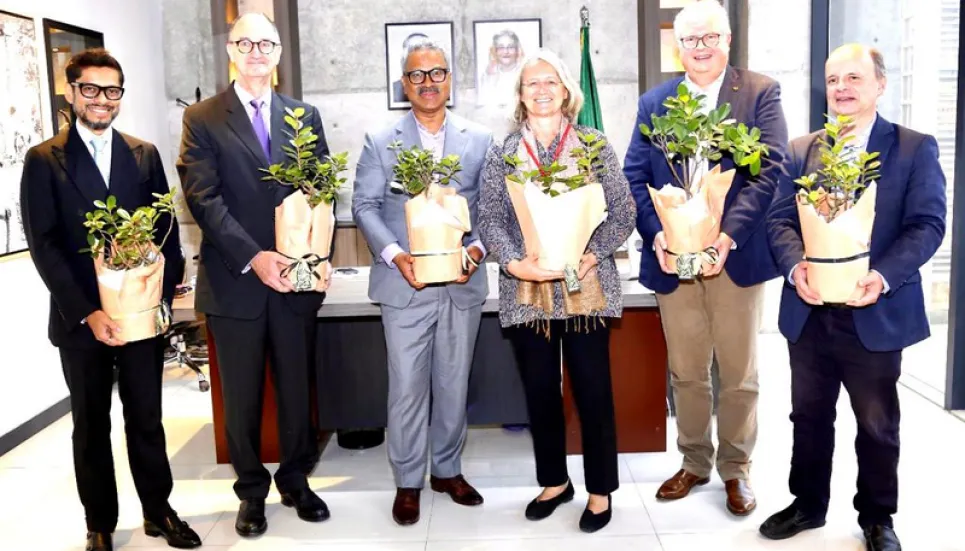Home ›› 12 Oct 2021 ›› Back

A recent study has revealed that Bangladesh’s textile and garment sector can achieve sustainable growth and value addition if the sector expands towards the production of Technical Textiles (TT) and Personal Protective Equipment (PPE).
The study, titled ‘Feasibility Study on Scaling up the Production of Technical Textiles (TT) including Personal Protective Equipment (PPE) in Bangladesh’, was commissioned by the Deutsche Gesellschaft für Internationale Zusammenarbeit (GIZ) GmbH with support of BGMEA, said a press release.
The study findings were introduced to the public at a hybrid event jointly organised by BGMEA, GIZ and GFA on Tuesday.
Werner Lange, Textile Cluster Coordinator of GIZ Bangladesh, in his welcome remarks said, “We are proud to share the results, particularly critical gaps, key actions and an overall strategy to support Bangladesh in entering into this new market and – most importantly – in succeeding there in a sustainable and compliant way.”
Under the presence of the Ambassador of Germany to Bangladesh, Achim Tröster, BGMEA President Faruque Hassan, Vice President Shahidullah Azim, Vice President Miran Ali, Werner Lange, Textile Cluster Coordinator of GIZ Bangladesh and Angelika Fleddermann, Country Director of GIZ Bangladesh, panelists Abdullah Hil Rakib, Director, BGMEA; Tariqul Islam, Assistant Director, Snowtex; Thomas Hübner, Business Scout, GIZ; and the author of the study, Charles Dagher, Consultant, GFA, supported by his study team colleague Dr Rajesh Bheda; discussed the challenges and opportunities that come with the proposed shift towards the sub-sector.
Faruque Hassan, President of BGMEA said, “At this juncture we need investment and technical knowhow from the developed part of the world. Our industry is ready to cater the growing market of the TT and PPE and demand is also in the rise. We encourage joint venture in technical textile and PPE and also need support from the brands, testing services companies and technology suppliers to join hands and take the potential to a reality.”
The study advocates for Bangladesh to capitalise on the country’s reputation as a compliant and certified trading partner to EU and US markets.
Once Bangladesh has built its confidence and reliability in the new product sector of TT and PPE, advanced technologies can be introduced.
These will help to diversify and sophisticate the product portfolio, offering greater profit margins.
Even a limited number of products, if they adhere to a high quality standard, will open the door to a host of niche categories and products. Encouraged by the success of the early manufacturers, more companies will take the leap and the sub-sector will grow.
Still, some major bottlenecks remain to be conquered. These include a lack of awareness of market requirements, inadequate technical expertise, difficulty in sourcing high-performance raw materials, compliance and certification requirements, and the dependence on capital investment.
The German development cooperation, namely the GIZ textile cluster, is capacitating local stakeholders to tackle some of these challenges. Outlining the successes of GIZ interventions in the textile and garment sector, the German Ambassador Achim Tröster assured the continuation of support.
He concluded, “We are glad to cooperate with Bangladesh in the textile sector and – through this study – to give strategic impulses for further development of the sub-sector of technical textiles.”